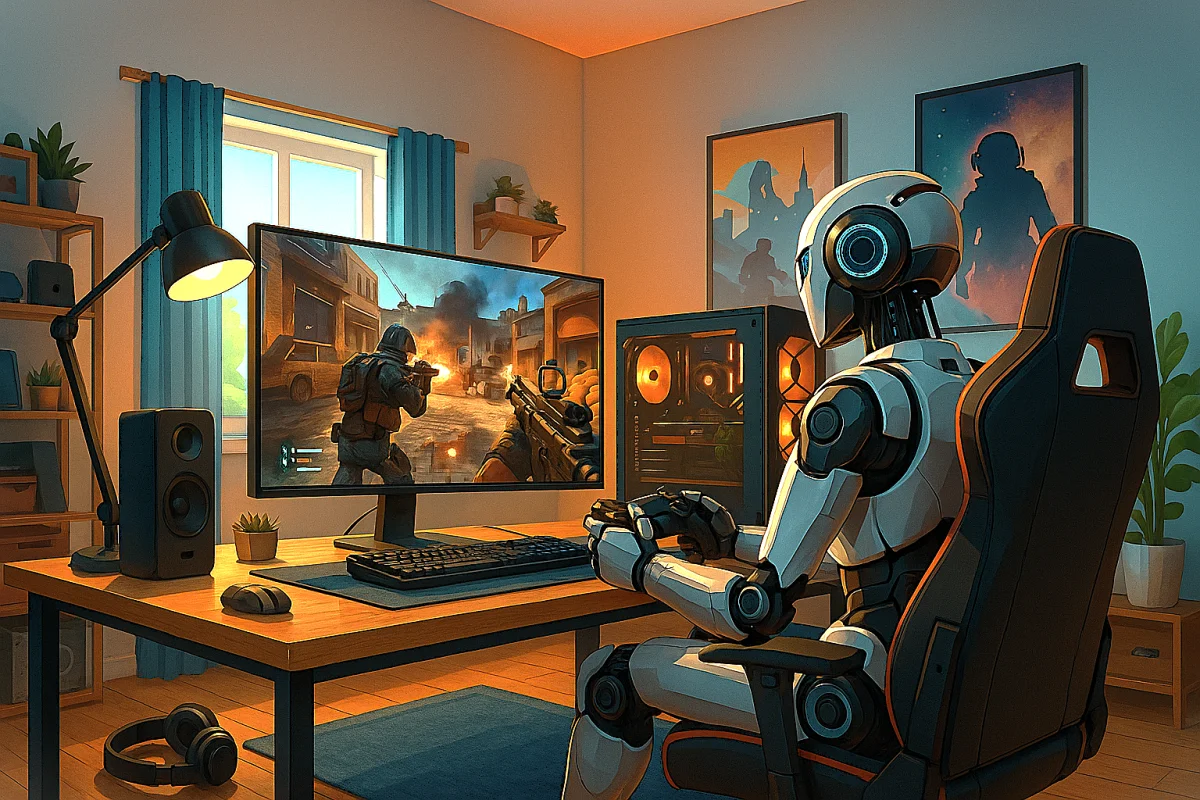AI in Games: How Artificial Intelligence is Transforming Gameplay Design and Character Behavior
Modern games increasingly rely on artificial intelligence. In the past, AI was responsible only for simple enemy behavior, but today its role has expanded significantly. AI now influences not only character movements and reactions but also the entire gameplay design, making the gaming experience more dynamic and realistic.

AI and Character Behavior
The most visible change is in character behavior. In older games, enemies followed pre-set algorithms—they either fled, attacked, or repeated the same actions. Modern AI gives characters the ability to learn, adapt their strategies, and respond to the player’s actions. This creates the impression that virtual characters are alive and thinking entities within the game world.
Transformation of Gameplay Design
AI has a major impact on how games are designed. Developers no longer need to pre-plan every detail, as AI can generate situations on its own. For example, procedural generation allows systems to create new maps, missions, and scenarios each time, ensuring every playthrough is a unique experience.
Interactive Environments
AI also makes environments more interactive and realistic. Enemies can react to sound, sight, or specific player actions. NPCs (non-playable characters) are becoming more interactive—they can engage in evolving dialogues, offer choices, and even create dynamic storylines. This enhances realism and keeps players constantly engaged.
AI as a Co-Developer
Today, artificial intelligence is no longer just an assisting tool—it often acts as a co-developer. AI algorithms collect data from player behavior and use it to adapt game dynamics. This means two players might experience the same game in entirely different ways, depending on their actions and strategies.
Ethical Challenges
AI in games should not be seen only in a positive light. There are ethical questions as well: is AI always fair to the player? Could it cause frustration by creating challenges that are too hard or too easy? Developers must strike a balance—AI should be challenging enough to keep players engaged, but not unfair.
Future Outlook
The role of AI in gaming will only continue to grow. In the future, characters are expected to display more emotions, while environments become even more “alive.” Additionally, Generative AI may be used to create new storylines, dialogues, and world elements, offering players constantly evolving and innovative experiences.
Conclusion
AI in games has already become an inevitable reality. It is transforming character behavior, gameplay design, and the overall gaming experience. When applied thoughtfully, artificial intelligence not only entertains but also sets new standards in interactive entertainment. The future belongs to developers who can fully harness the potential of AI.
✍ Article Author
- Registered: 26 July 2025, 15:34




 Silent Cat 🐾
Silent Cat 🐾